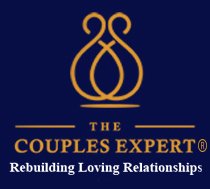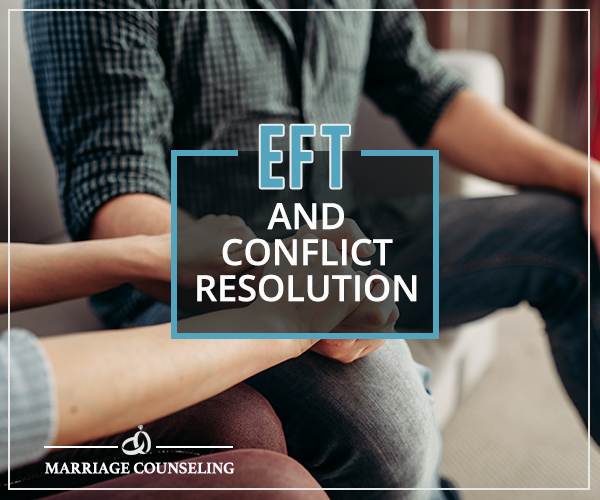EFT is a type of counseling that focuses on adult relationships and attachments. It’s an attachment-based model. The counselor looks at the relationship issues with regard to the connection that couples develop a secure bond a bond of trust; developing secure connections that move the relationship in a healthier and more positive direction.
Each person basically has a sense that they have a partner who truly understands them as an individual, the good, bad and the ugly. Your partner accepts you for who you are and will see you as the best thing that ever happened to them. With this in mind, we look at couples who are living together for the long-term. The hope is that you will develop a long-term relationship with a partner that will be with you for the rest of your lifetime. Having someone you feel like you can count on is really important. The trick is, when we’re in a long-term relationship, there are triggers that can keep you from viewing your partner in positive ways.
What EFT allows you to do is see your partner in their best light. You develop a relationship in which the two of you see yourselves as a formidable team; two people in a relationship where you feel that there is nobody in the entire world that loves you more than your partner does.
What we have to understand that when you’re with somebody 24/7, there are issues that come up that create difficulties for the two of you. These triggers then create an experience where there’s a feeling of emotional disconnection. This happens more often when there’s anger as part of the picture. When there is conflict, the couple doesn’t know what to do with or how to resolve it.
The idea is to have conflict be something couples are not afraid of. Some couples come from differing backgrounds where conflict is viewed in destructive ways. Their experience may have been that conflict in their past was rage-filled or there was fear associated with the conflict.
What’s important is that two people have a dialogue so they both understand what their partner’s experiences were with anger in their past.
When a couple has an EFT model in therapy, what the counselor will do is an initial assessment meeting the couple together, then meeting with them individually as part of the assessment so that we can learn about their family background. What we’re doing in that individual assessment, is find out what role conflict has played in their background. Do they come from an experience that, where there’s anger or conflict in the family, has there ever been a resolution? Is there a repair to the anger? You see, conflict in itself is not the problem; it’s the lack of repair.
You and your partner need to have a conversation whether you come from a different background where there is repair or there is not. The essential element that couples who have conflict need to have is the repair. To be able to do what I call an “autopsy” on the situation, to look at what just happened. What led the two of you to feel so emotionally disconnected?
If there’s an ability to have those kinds of conversations, you and your partner will be able to resolve most issues. What it’s generally about, and I believe this is important; when you have conflict in your marriage; you have to have an understanding of what the conflict is really about.
For most people, the source of that conflict is a fight for connection; so what we experience is a feeling of disconnection. What we have to understand is, that if we approach it as a couple with the same hopes and dreams, (I think most couples do have), what you are fighting for is maintaining an emotional connection and feeling that you have someone in this world that cares about your happiness.
How we handle conflict is very important.
For many years we took a problem-solving approach. That approach is very helpful. The conversation we’re having now is about how their behavior is impacting us. The more you speak from an attachment perspective, what I like to call “attachment land language”, describes feelings and discusses security, stability, trust, love, and importance.
For example: “When you said something rude about me in public I felt so bad because I want to be that person to you that you always hold in high regard.
Not that I’m just pissed off that you embarrassed me in public but when you said that about me I really felt that I am letting you down.“
Now that vulnerability and authenticity are what allows couples to then have a conversation about their value to one another.
The more we talk about it, the easier it is to help your partner feel important to you. So when we’re in conflict we want to slow the process down. We want to share with our partners, from an emotional place, how their behavior has impacted us with the importance that they hold for us.
The more that conflict escalates the more difficult and defensive we get.
We don’t want our partners to see the injury they’re causing us. That’s really a contradiction. We want our partners to understand their value to us. When we’re angry with them, a lot of what we’re angry about has to do with the sadness we have about the disconnection.
The more we can get through the anger and get to the other side, (and often the other side is feeling of helplessness and sadness), we can talk about not feeling not feeling close to our partners. That’s where the conflict really gets going.
There are ways to handle an issue where we don’t attach blame. Instead, we sit down with our partner and propose a solution. We get our partners to listen and reach an agreement, feeling a sense of compassion and togetherness. Knowing we have someone we can count on that truly cares about us.
Please come back again to see Part 2 of this conversation where I will discuss some proven techniques for working on a specific source of conflict.







